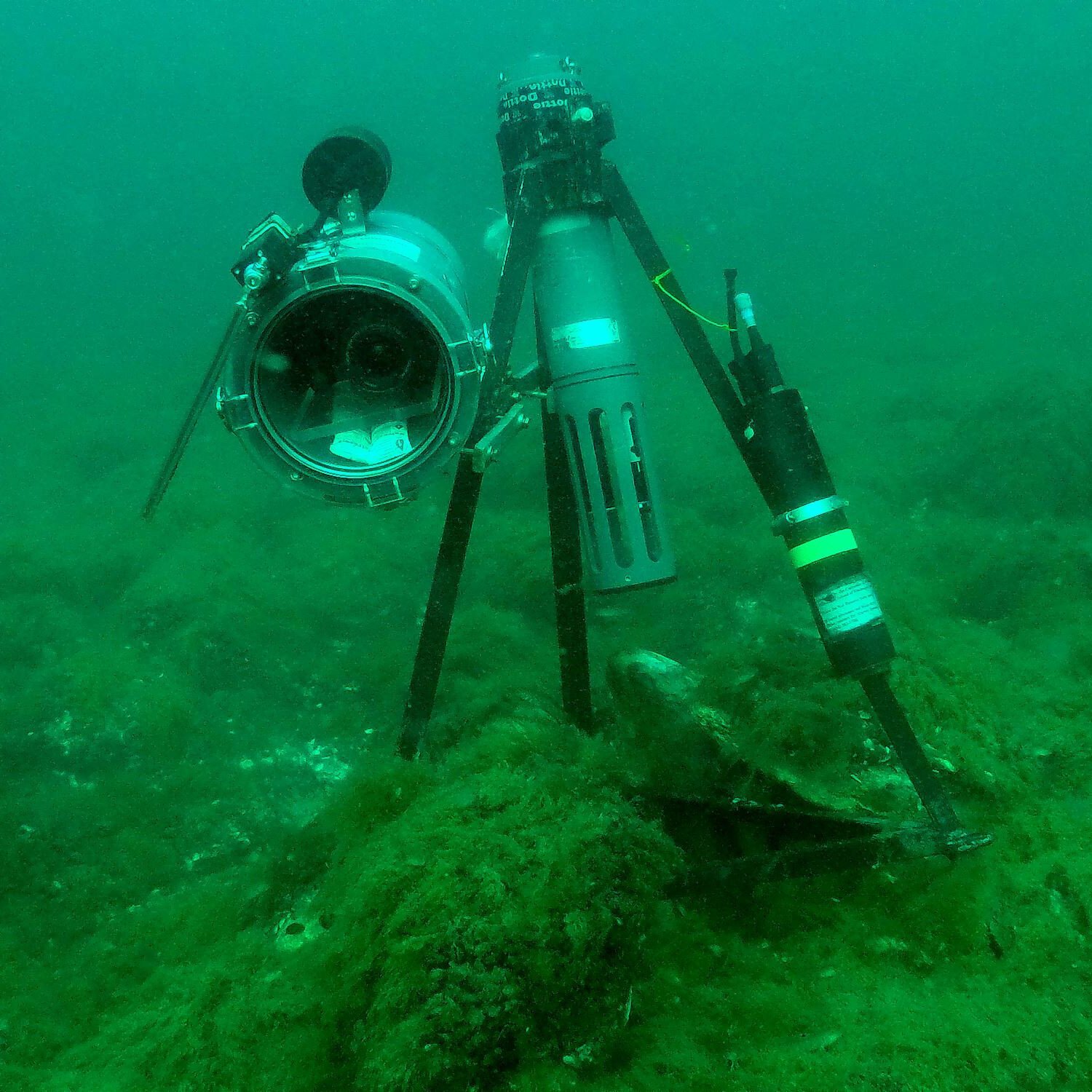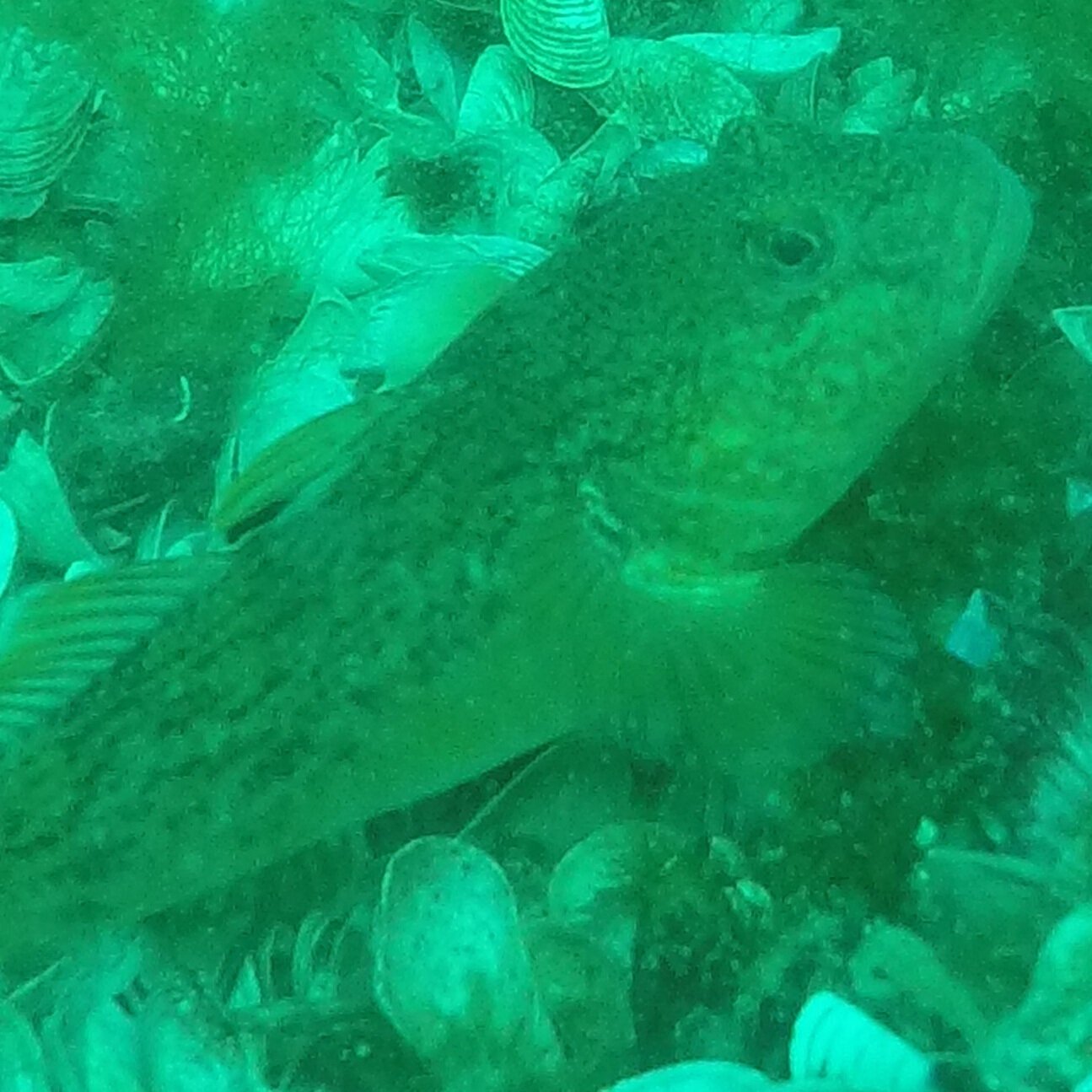Graceanne Tarsa
Studying Invasive Species Impacts
Meet Graceanne. She studies invasive species in Lake Michigan in Dr. Harvey Bootsma’s lab at the UW-Milwaukee School of Freshwater Sciences. Graceanne gets to scuba dive, using a paint scraper to scrape mussels from the lake bottom, and herding fish called round gobies into nets so she can collect them and analyze what they’re eating to learn how the Lake Michigan food web is changing. Many of us never see—let alone think about—what lives beneath the waters of our Great Lake, but Graceanne sees firsthand. She is one of many master’s-degree students at SFS—as the unique institution is known to its graduate students—and hopes her education will lead to a career where she gets to engage the public about aquatic science.
An underwater camera at Sleeping Bear Dunes
Graceanne’s research involves collecting mussel and goby samples from two Lake Michigan sites—one off Atwater Beach in Milwaukee and the other “on the other side of the pond” off a large reef at Good Harbor Bay, at the Sleeping Bear Dunes National Lakeshore near Leland in northern Michigan. Once a month in the summer, her lab takes the Lake Express Ferry across to Lake Michigan’s eastern shore. After diving to collect mussels and gobies, the next step is to learn from the samples. Back in the lab, Graceanne counts and measures the gobies she’s collected to see how big they are; analyzes their scales and otoliths (small fish ear bones) to find out how old the fish are; explores the gobies’ gut content (fun fact: round gobies don’t have stomachs!); and also compares stable isotopes of carbon and nitrogen found in the fish. “That can tell us a lot about what they are eating,” she says. “Connecting all those pieces tells us how a species is impacting an ecosystem.”
A round goby on a bed of quagga mussels. Both are invasive species that have colonized the Great Lakes.
At the School of Freshwater Sciences, Graceanne has discovered that “science is messy!” But that too is part of the learning process. She’s also learned that the SFS community is an eclectic, talented, and generous bunch who are experts in seemingly disparate disciplines but willing to help out across those boundaries (like when your experiment’s freeze dryer goes kaput and you need to improvise!). In Dr. Harvey Bootsma, who studies lake ecology, Graceanne has also found a valued mentor as she pursues a career involving public engagement around aquatic science.

SFS graduate student Graceanne Tarsa.

An underwater camera at Sleeping Bear Dunes.

A round goby on a bed of quagga mussels. Both are invasive species that have colonized the Great Lakes.

